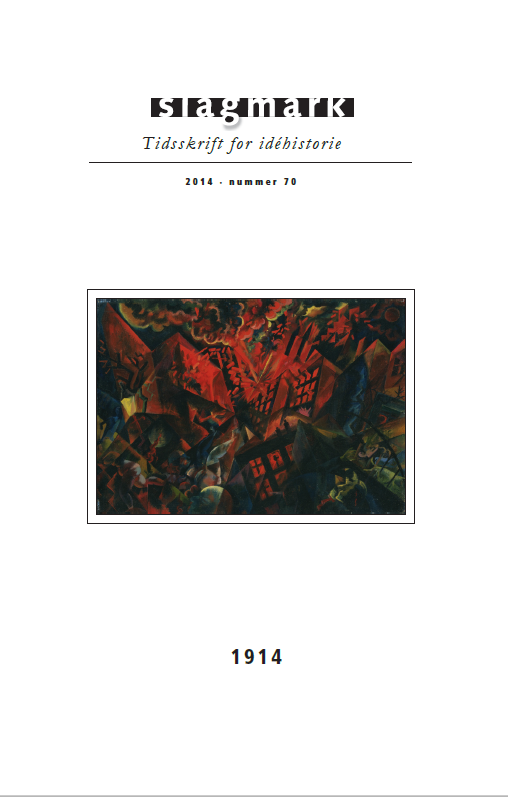Mellem to verdener - Krigsrepræsentationer hos Walter Flex, Ernst Jünger og Erich Maria Remarque
DOI:
https://doi.org/10.7146/sl.v0i70.104413Keywords:
World War I, German War Novels, Battle of Langemarck, The Lost Generation, HeroismAbstract
This article compares representations of war in Walter Flex’ The Wanderer between Two Worlds (1916), Ernst Jünger’s Storm of Steel (1920), and Erich Maria Remarque’s All Quiet on the Western Front (1929). It shows the extent to which these representations are shaped by political and ideological convictions. The difference between the romantic idealism of Flex and Jünger’s “soldierly nationalism”,which he proposed as a model for the time to come, reflects a major shift during World War I itself. By contrast, neither past nor future seem to be of any use in Remarque’s famous antiwar novel, in which the war generation surprisingly is described as having nothing else to live for beyond the present, i.e. beyond war. Finally, the article suggests how these different representations of war each, in their own way, contributed to the aesthetics and ideology of fascism.
Downloads
Published
2018-03-09
How to Cite
Paulsen, A. (2018). Mellem to verdener - Krigsrepræsentationer hos Walter Flex, Ernst Jünger og Erich Maria Remarque. Slagmark - Tidsskrift for idéhistorie, (70), 65–84. https://doi.org/10.7146/sl.v0i70.104413
Issue
Section
Tema





